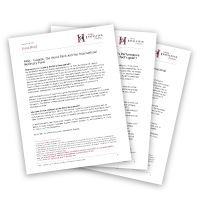What is the Bank of the South?
On December 9th, 2007, representatives from Argentina, Bolivia, Brazil, Ecuador, Paraguay, Uruguay, and Venezuela met in Buenos Aires, Argentina, to launch “el Banco del Sur” or the Bank of the South (BoS). With the creation of the Bank, the leaders of Latin America envisaged a new development institution to help promote growth and tackle poverty. The BoS was originally proposed in 2006 by Venezuelan president Hugo Chavez. Chavez, along with other South American leaders, wanted a Bank that would allow them to assert their political and financial independence from traditional international financial institutions (IFIs), like the International Monetary Fund (IMF) and the World Bank, and put an end to decades of structural adjustment policies imposed by the IFIs on countries in Latin America.
 In this section are a series of issue briefs and policy briefs on different areas and institutions. The issue briefs provide readers with background information. Policy briefs go beyond backgrounders by adding the Halifax Initiative Coalition's stated policy position on the issue.
In this section are a series of issue briefs and policy briefs on different areas and institutions. The issue briefs provide readers with background information. Policy briefs go beyond backgrounders by adding the Halifax Initiative Coalition's stated policy position on the issue.